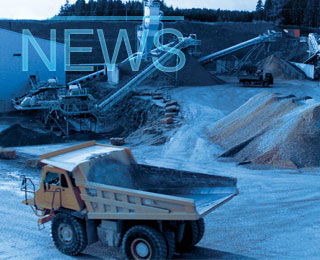The 12 winning projects of the Holcim Awards 2014 Africa Middle East have been announced in Beirut, with a green building in Turkey, an urban forest rehabilitation in Lebanon, and a low-cost housing plan in Ethiopia receiving the top prizes.
The projects, which were recognised with a total of USD330,000 in prize money, focus mainly on enhancing social and environmental resilience, as well as the economy of construction, Holcim said in a statement. "The winning submissions show the development of multi-disciplinary responses to the challenges facing design and building," the company added.
Top-prize winners
Eco-Techno Park, Turkey
The Eco-Techno Park, an ecological park for sustainable research and technology planned for an industrial zone in Ankara, Turkey won the top prize. Creating an attractive communal space for its users with minimum interference to the natural context, the building and landscape design by architects Onat and Zeynep Öktem of ONZ Architects, Turkey incorporates various sustainable features such as natural lighting, geothermal heat pumps, green roofs, passive ventilation and water efficiency/irrigation systems.
Evergreen City, Beirut
A rehabilitation plan for a pine forest park in Beirut, Lebanon by Raëd Abillama of Raëd Abillama Architects in Lebanon won Silver. The Evergreen City urban plan develops the facilities and services needed in the park to open it to the public, and promoting it for cultural, social, sports, and environmental activities – while also maintaining and conserving the park’s natural habitats. Environmental standards and urban needs will be integrated in a seamless way, enhancing the sense of belonging to the wider community.
Incremental Construction, Ethiopia
Incremental Construction, a joint project by the Ethiopian Institute of Architecture, Building Construction & City Development (EiABC), Addis Ababa and Bauhaus University, Weimar, Germany received Bronze. The project led by Dirk Donath explores and implements construction techniques that tangibly upgrade housing stock in the city with close to 90 per cent of the building components including prefabricated concrete elements and lightweight eucalyptus frames produced by local micro and small-scale enterprises.
